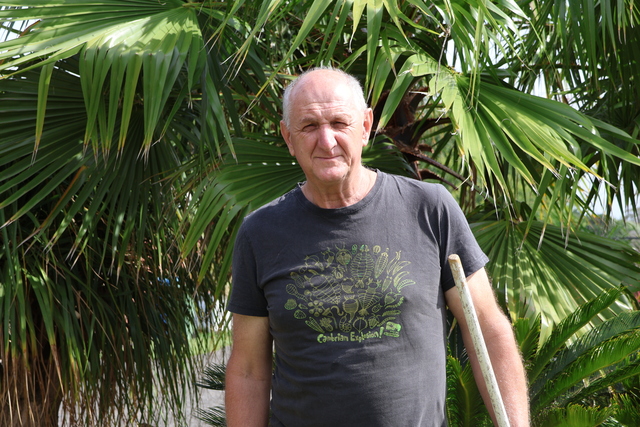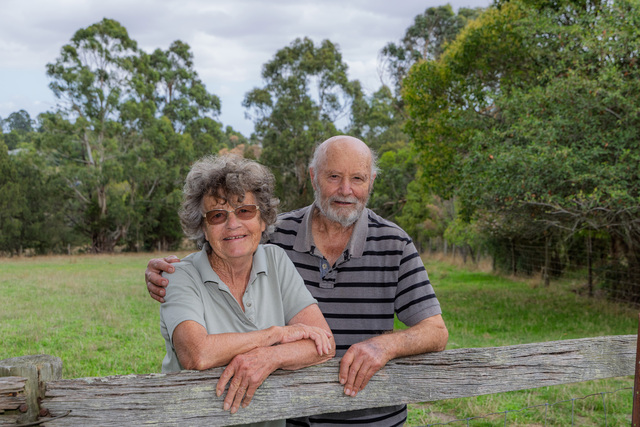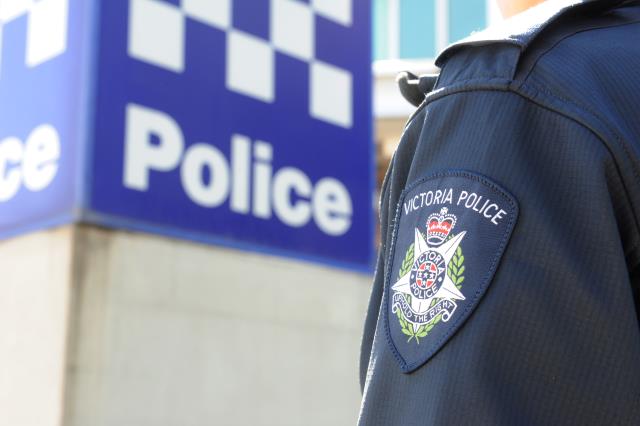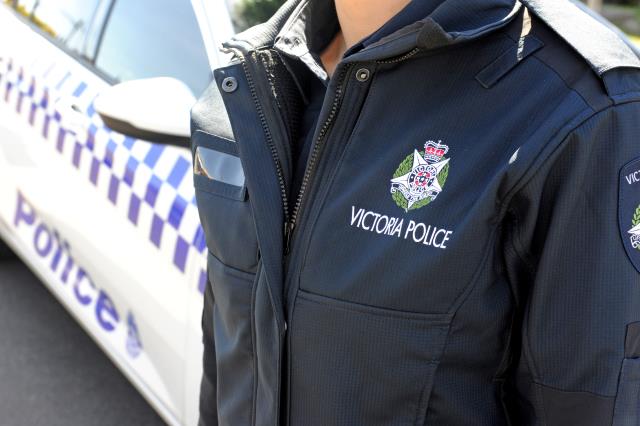Inaccurate wordings on Casey Council’s webpage have caused widespread confusion and anger on the municipality’s private land use permits amid last year’s Christmas. Subsequent awareness of the accurate versions has set off another wave of backlash at what activities are allowed on private properties.
How did it start and escalate?
The saga started when, on 23 December last year, Devon Meadow landowner Tom Kapitany shared a screenshot of Casey Council’s webpage that contained information on what activities require a permit on private land use in Casey, which he described as “a massive money grab by the former administrators”. The information at the time quickly whipped up a backlash over the Christmas period as locals found it outrageous that they needed a permit when storing or repairing a recreational vehicle, storing a shipping container (up to 90 days), storing unregistered vehicles (up to 90 days), putting up temporary dwellings (no more than 14 days in any 60-day period), and dismantle, repair or service vehicles on private land (non-commercial).
A petition to “abolish the permit requirement for private land use in the City of Casey” was then launched. At the time of the writing, it has gained close to 15,000 signatures. Several YouTube videos that criticised the permit were widely circulated on social media. The controversy mainly centred on the belief that residents had to pay for a permit to change the oil and refill the water for their cars or park caravans and motorcycles on their private properties.
On 31 December last year, almost a week after the social media storm, Casey Council released the first media release to count.
“Over recent days there has been some inaccurate information published online regarding Council’s Private Land Use Permit,” it stated.
“To clarify and reassure our community, this permit is part of the Casey Community Local Law and designed to protect the health, peace and safety of our community.”
Casey Council also said its customer service team had been subjected to threatening behaviour as a result of inaccurate information in recent days.
The community members pointed out the “inaccurate information” was attributed to Casey’s own webpage. Eagle-eyed locals also highlighted that the multiple areas of information on the webpage were inconsistent with its origins, the Casey Community Local Law 2023.
According to the law, a person must not, except with a permit, use private land to dismantle, repair, or service vehicles or machinery in circumstances where the activity or use is detrimental to the amenity of the area in which the private land is located. The statement differs from the information on the webpage with an addition of a condition.
When it comes to the regulation of recreational vehicles like minibikes, motorbikes, and go-karts, an owner of private land must not, except with a permit, use a recreational vehicle on that private land. A person who uses a recreational vehicle must ensure that the use does not inconvenience, obstruct, hinder or endanger any person, cause damage to any property or cause a nuisance to the occupier of any neighbouring land. The law emphasises the usage instead of storage and repair of recreational vehicles on private land as stated on the webpage. A similar inconsistency applies to the regulation of temporary dwellings.
In terms of unregistered vehicles, the law specifies that a permit is needed when there are more than two unregistered vehicles on private land.
The first several days of 2025 saw Casey Council gradually revising the webpage until the wording eventually synchronised with the Local Law.
On 7 January this year, Casey Council released the second and the third statement where it acknowledged that the wording on its website contained inconsistencies which had contributed to confusion, misinformation and concern across the community.
“Our residents do not need a permit to do minor maintenance on their car on private property, for example, an oil change or belt change,” it stated.
“You also don’t need a permit to park a caravan on your property.”
When inquired by Star News, City of Casey acting manager Connected Communities Lee Hobbs said council officers were working to continue improving the webpage to make this clearer for the residents.
Anthony Tassone, vice president of community organisation Casey Residents & Ratepayers Association (CRRA), said such was the concern of some residents on the initial incorrect information that they thought it was an early April fool’s joke.
“Mistakes can happen. They shouldn’t happen, but they can happen,” he said.
“What was disappointing was that the City of Casey did not appear to own that mistaken error initially. In their statement on 31 December was an inference that there were residents themselves who were responsible for spreading inaccurate information published online.
“The main source of the inaccurate information was the City of Casey’s website itself.
“A main part of continuous quality improvement is accepting when errors have been made.
“They need to own a mistake, review how it happens, and do whatever they can to ensure it doesn’t repeat because it has caused a lot of angst, concern, and confusion.”
What are the concerns now?
Mr Tassone said there remained areas of concern for residents regarding what was in the Local Law since the webpage information had been corrected, updated, and clarified.
The requirement for a permit for using recreational vehicles on private land has been particularly of concern.
“The Casey Local Law does not differentiate or make exemptions based on land size,” Mr Tassone said.
“The City of Casey is a diverse community, particularly the southern parts of our municipality where there’s green wedge and semi-rural acreage and farmland. Private landowners may live on large properties and don’t feel that it’s necessary that they should be expected to get a permit to use a recreational vehicle because they’re not causing any disturbance or nuisance to any neighbours or anyone else.”
Mr Tassone also questioned the free-of-harm condition of servicing and repair of vehicles on private land.
“It does seem bizarre that a resident can obtain a permit to service, repair, or maintain a vehicle if the activity is having a detrimental impact on the amenity of the property,” he said.
“Rather than requiring someone to get a permit, why don’t you just not allow them to do it?
“Rather than allow rather than requiring everyone to get a permit to use a recreation vehicle on private land, if they’re being a nuisance and impacting the amenity of the area, why don’t they directly address those particular instances which would be the exception?”
Mr Tassone said CRRA was aware that the purpose of the Casey Community Local Law 2023 was to “provide peace and order, provide an environment free from hazards and prevent nuisances” which might affect the quality of life and enjoyment of residents.
“The City of Casey needs to ensure the balance is right without creating unnecessary red tape, intrusion, and cost burden for residents to use their private land,” he said.
“This would need a review of the existing Local Law which the CRRA would welcome and participate in consultation.
“The CRRA is committed to working with the City of Casey to help best inform this.”
What is Local Law?
The permit concerns circled back to the intention, the interpretation, and the enforcement of the Local Law.
City of Casey acting manager Connected Communities Lee Hobbs said the council was not attempting to tell people what they could and couldn’t do on their private land through the Local Law.
He highlighted that a permit was only required in circumstances where the activity or use is detrimental to the amenity of the area in which the private land is located.
“The intention of the Casey Community Local Law is to support the peace, health, safety, and wellbeing of our community. Some clauses within the Local Law require a permit from the council for an activity to be undertaken,” he said.
“The aim of local law permits is not to restrict activities unnecessarily but to ensure they are managed in a way that minimises disruptions or harm to neighbours and the community.”
Mr Hobbis explained that the council’s involvement with a private land permit started with complaints and the final application of a private land use permit is on a case-by-case basis.
“Typically, the way the council would approach a private land permit is firstly when a resident contacts the Council to make a complaint or to inform the council that a property is impacting their peace or wellbeing,” he said.
“Some examples might include hoarding multiple cars on private property, untidy properties with car shells, car parts and other machinery, illegal mechanics operating from a private property causing a lot of noise or creating hazards, people living in caravans on private property for extended periods of time, this can cause a nuisance to neighbours and environmental health issues.
“Shipping containers located in the front yard of a private property obstructing views and creating hazards.
“Council officers will then contact the property owner to investigate if it is discovered that an activity is causing detrimental impact to the peace, health, safety and wellbeing of neighbours or the local amenity. Council will work with the property owner to find the best outcome for both the property owner and the neighbours. It will be at this stage that a Private Land Permit will be discussed.”
Casey Council revealed that from July 2023 to December 2024, a total of 20 private land use permits were issued in the City of Casey. No permits have been required or issued by the council in relation to servicing vehicles on private property.
What are the other concerns?
Devon Meadows landowner Tom Kapitany, who first made known the initial incorrect information on the council’s webpage, has been upfront about his criticism of how council officers apply the Local Law, given his history with Casey Council’s town planning team.
“It’s always about how the council officers apply the law. They can decide to act or not act,” he said.
“The problem is that there’s always so much overreach by council officers. They want to show people they’re doing their jobs. They want to show people they’re getting fines and making money and complying with green wedge regulations or other things.”
He said there should be a common sense approach to the application of laws.
Mr Kapitany believed financial want was behind the overreach he had personally experienced, and he had heard from other local landowners.
He said the pricing of the permits was a “pure money grab”.
Currently, the application fee for a permit is a non-refundable $150 plus. Permit for a recreational vehicle costs $150, long/heavy vehicle $473 per vehicle, shipping container $350, temporary dwelling $350, and unregistered vehicle $250 per vehicle.
Mr Kapitany said the former administrators should take the blame as the latest version of the Local Law was passed amid their reigns.
“My criticism of the administrators has always been that they don’t care about people. They care about money and finances,” he said.
“The administrators went around to any sort of money-grabbing exercise I possibly could imagine.
“They did anything that they could do to save the council money.
“What this council has done is just to find more ways to grab money from people to fill up the financial shortfall.”
When inquired, City of Casey acting manager Connected Communities Lee Hobbs said the private land use permits were not aimed at raising revenue from the residents.
“In 2023, the fees and charges for private land use permits were brought in line with the local government sector. Fees and charges are based on the administration and resources required to service the permit,” he said.
“This includes engagement with property owners and local neighbouring properties, reviewing required documentation and site plans and related administration.”








